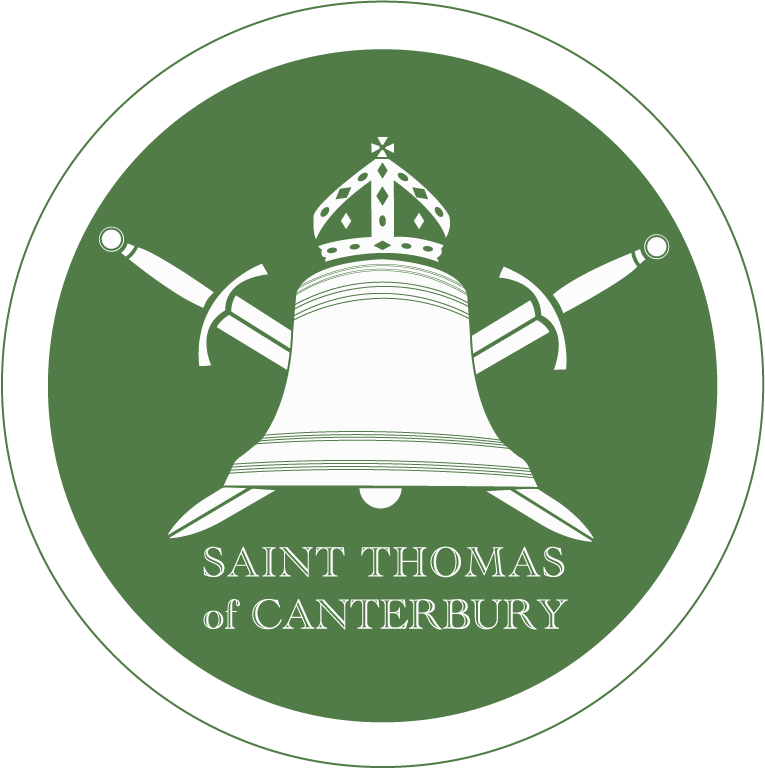Homily, October 5, 2025, Rev. Holly Cardone
Faith of a Mustard Seed
October 5, 2025
Have you seen a mustard seed. Small. Teeny tiny. God’s miraculous creation. In the Gospel of Matthew 13: 31-32 Jesus told the parable of the mustard seed as a metaphor for the kingdom of God like this, “The kingdom of heaven is like a mustard seed which a man took and planted in his field. Though it is the smallest of all seeds, yet when it grows, it the largest of garden plants and becomes a tree, so that the birds come and perch in its branches.” The smallest of seeds to the largest of bushes.
In the gospel of Luke, Jesus isn’t comparing the mustard seed to the kingdom of heaven, this is about faith. A teeny, tiny amount of faith is all it takes.
Just before the reading this morning Jesus is teaching the disciples about forgiveness. Jesus says, “If someone sins against you seven times a day and turns back to you seven times and says, ‘I repent,’ you must forgive.”
I’m sure the disciples were like, “you’re kidding right?” If my brother does something to hurt me repeatedly, I have to forgive him, over and over again? Seven times a day, seven days a week, forever. You mean, I may never be free of Judas and his tightening of the purse strings, or Peter and his reactivity, and those two guys that wanted to sit one on your left and the other on your right hand, or Thomas, who doesn’t quit asking questions all the time? You’re kidding right?” Jesus is not kidding.
Well, then, we’re going need a lot more faith, they say.
Jesus doesn’t say, “Here you go! Here’s more faith.” He says, “you’ve all seen a mustard seed, right? Well, faith the size of a mustard seed is enough.”
I’ve been on a spiritual journey since I was a teenager. There must be something bigger than the misery I am in right now, I thought at the time. I just didn’t know what the “something bigger’ was or how it might change the way I thought and felt about everything. But I had faith in something else that I couldn’t touch or taste or see. I had faith that there was another way to live.
What I didn’t know was that faith was not, is not quantifiable. I thought if I had more faith, I would be less afraid, less selfish, less unhappy, less depressed. I thought the amount of faith I had was in direct correlation to how happy I was. Or how much pain I was experiencing in life. Or being a good person. If I had more faith, things would be better, different, or easier.
That, my friends, isn’t a lack of faith. That is called Spiritual Bypass. If I have enough faith, believe in God enough, and do enough prayer, meditation, church and service work, I will transcend pain and discomfort and float 3 feet above the earth in eternal bliss. All the time. The quest for more faith becomes a way to avoid unresolved emotional issues or psychological wounds. We don’t need more faith, we need to engage and orient ourselves to Christ with the faith we have.
With the faith we have, we engage in the everyday activities of being a human being on this planet. We have exactly the amount of faith we need. Trying to increase our faith to move mountains, get things done, get the outcome we desire, or alter our reality to something we find much more acceptable, is not faith. It’s using faith as currency. One preacher said it this way, “Faith is engagement, orientation, direction. Faith is something we do not something we have.”
Episcopal priest and writer, Barbara Brown Taylor says we waste energy hunting for “the treasure box of More,” when in fact we already have what we need; mustard-seed faith is about consenting to the grace already present rather than stockpiling “more” faith.
Jesus declares, “Your faith has healed you,” to the woman who anoints his feet, the Samaritan leper who returns to thank him, and the woman who bled for many years who grasps his cloak. To the blind beggar he says, “Your faith has made you well.” And to the Roman centurion Jesus says, “Such faith I have not seen in all of Israel!”
These people put their trust in Jesus. He admires them because they have oriented themselves in his direction. Their desperation for healing and wholeness moves them toward him. They are willing, in the most difficult, painful, and vulnerable situations, to lean into his love, healing, justice and mercy.
When the stakes are high, we muster all the faith we can to persevere. We are focused, energized, and awaken. But this faith, the faith the size of a mustard seed, is everyday faith. It is the faith as ordinary and straightforward as the slave serving his master dinner, or as ordinary as a hired worker fulfilling the terms of his contract. This is the faith that asks us to show up to life. Do what’s in front of us. This is the faith that recognizes we have a small place in the creative, compassionate and merciful love of God. This is the faith of no expectations. Only the expectation that love wins. Always.
